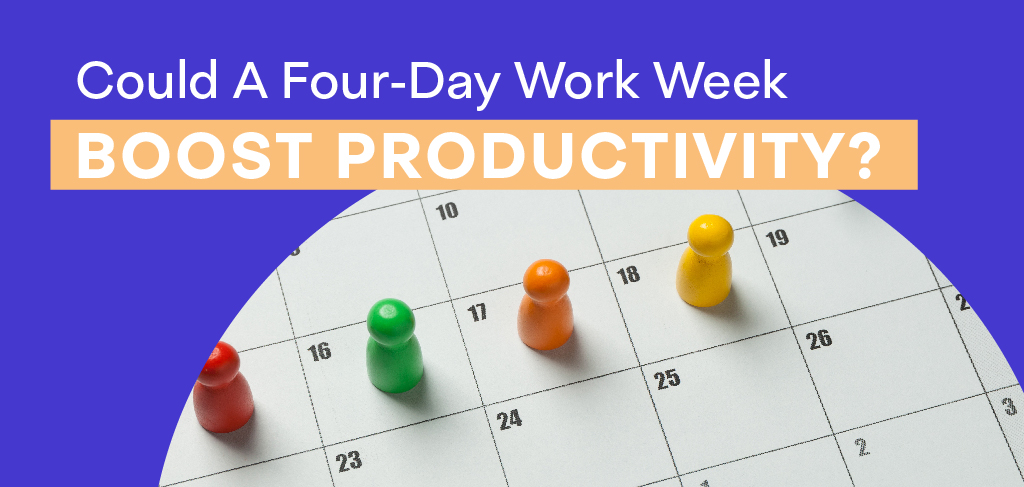Could businesses’ productivity be helped by the four-day work week?

As the UK’s four-day work week trial continues, many are starting to wonder if the benefits of adapting to this way of working can be seen. Can removing a day from the working week really impact human life positively without impacting working life?
The minds over at co-working space company, Work.Life, wondered the same thing. This made the Work.Life team conduct some research into the four-day working week, its benefits and some of its possible negatives. Here’s what they found…
KEY FACTS –
- Working more hours makes you less productive – working more than 50 hours per week harms productivity.
- The four-day working week has made 91% of employees happier.
- 27% of employees say they have seen a reduction in workplace stress.
- 79% of employees say the introduction of the four-day week has improved their mental health
Could the four-day work week be the key to boosting businesses’ productivity?
Productivity
Work.Life first wanted to assess the productivity impact that the four-day working week could have. They found that the average working week is made up 36.5 hours, traditionally carried out between Monday and Friday.
Whilst its still too early to see any conclusive results on productivity from the UK trial, Work.Life looked at other trials of the practice to draw conclusions. They sound that the first four-day week trial to gain widespread recognition was carried out by Kiwi trust management firm, Perpetual Guardian back in 2019.
They found that moving to a four-day week gave
- A 20% increase in team member productivity
- A 27% reduction in workplace stress
- A 45% improvement in work-life balance
Pretty positive statistics!
Other prominent businesses have since trialled a four-day week. Microsoft Japan saw a 40% productivity boost, and Buffer found that 91% of employees were happier and more productive with four-day weeks.
The Work.Life team also discovered that while working 50 hours a week can be productive for some, there is practically no difference in productivity levels between those who work 55 hours per week and those who work 70 hours per week!
Health
Whilst looking at the practical business element of productivity, it is also important to remember that positive business impact isn’t the only factor to the four-day work week. The human element is arguably the most important factor to the trial as a whole.
The Work.Life team are extremely focused on the happiness of all those using their spaces. This meant they put a lot of effort into researching the health and well-being benefits of the four-day working week.
They found…
A World Health Organisation study found that working more than fifty-five hours each week increases the risk of strokes by 35% and heart disease by 17%.
A Qualtrics survey found that 79% of respondents felt working four days rather than five would improve their mental health, and 88% said it would enhance work-life balance. These statistics are unsurprising given that 58% say their job is the source of their mental health challenges.7
The possible downside
Whilst the majority of the UK are big advocates for the four-day work week and the figures show it can have an overwhelmingly positive impact on life there are some possible downsides.
Whilst conducting their research the Work.Life team found that –
- 72% admit that a four-day week would result in working more hours on working days to make up for the lost day.
- Microsoft Japan’s experience bore this problem out: 27% admitted that they work on average four and a half days to catch up on communications with clients.
- Senior leaders are concerned about how working four days a week would impact revenue.
- 48% thought employees would slack off
- 53% predicted that reducing working days would negatively impact sales.












Responses